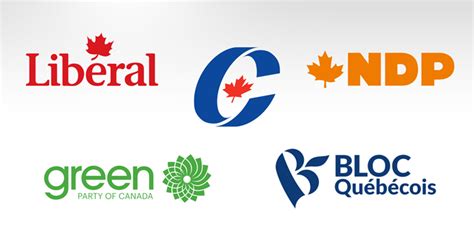![]() The origins of political parties in Canada can be traced back to the country's early history, with the formation of the first political factions occurring in the 19th century. Here are the origins of some of Canada's major political parties:
The origins of political parties in Canada can be traced back to the country's early history, with the formation of the first political factions occurring in the 19th century. Here are the origins of some of Canada's major political parties:
Liberal Party of Canada: The Liberal Party traces its roots to the early 19th century. It was formed in 1867, the same year Canada became a confederation, under the leadership of Sir Wilfrid Laurier. The party's ideology has evolved over time, but it has generally supported progressive and centrist policies, advocating for social welfare, individual rights, and a mixed-market economy.
Conservative Party of Canada: The Conservative Party has its origins in the Tory Party, which existed during the colonial period. After Confederation, the Conservative Party was established in 1867, led by Sir John A. Macdonald. The party has traditionally advocated for conservative values, including fiscal responsibility, free markets, and a strong national defence.
New Democratic Party (NDP): The NDP emerged in 1961 through the merger of the Cooperative Commonwealth Federation (CCF) and the Canadian Labour Congress (CLC). The CCF, founded in 1932, was a socialist party advocating for social democracy and workers' rights. The NDP has championed progressive policies, including social justice, environmental protection, and workers' rights.
Bloc Québécois: The Bloc Québécois was formed in 1991 as a separatist party advocating for the independence of Quebec. It was established in response to the failure of the Meech Lake Accord, a constitutional agreement that sought to recognize Quebec as a distinct society. The Bloc Québécois primarily represents the interests of Quebec and promotes sovereignty for the province.
Green Party of Canada: The Green Party emerged in the 1980s as a political movement focused on environmental issues. It became an official political party in 1983 and has since promoted environmental sustainability, social justice, and grassroots democracy. The Green Party aims to address ecological challenges and incorporate sustainability into all areas of governance.
It is important to note that the landscape of Canadian politics has evolved over time, with parties adapting their platforms and policies to address changing societal needs and issues. Additionally, regional parties and smaller parties have also played significant roles in Canadian politics, reflecting the diversity and regional dynamics of the country's political landscape.
Source: Some or all of the content was generated using an AI language model


No comments:
Post a Comment
Contact The Wizard!
(he/him)